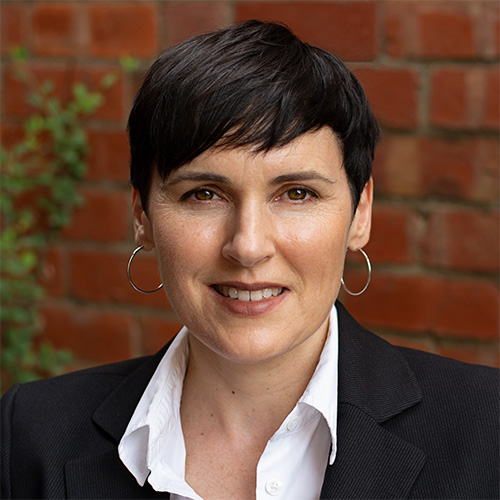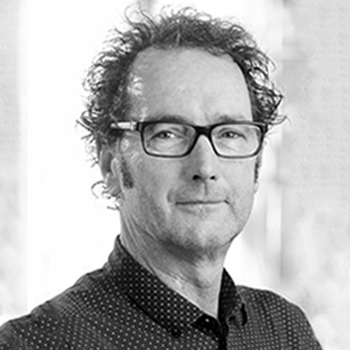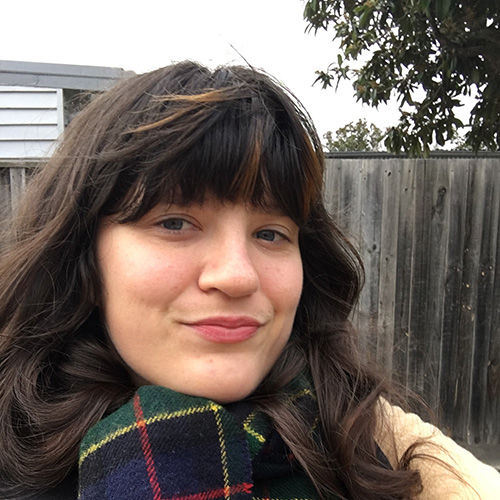Research Team
Research Team

Belinda Smaill
Belinda Smaill is a Professor in Film and Screen Studies at Monash University. Over the last two decades she has built an international reputation in the field of screen studies and documentary studies in particular. She has published over 30 journal articles and book chapters and her two books, The Documentary: Politics, Emotion, Culture (Palgrave MacMillan 2010) and Regarding Life: Animals and the Documentary Moving Image (State University of New York Press 2016) have garnered international recognition for their role in rethinking the documentary tradition in the history of the moving image. Over the last decade she has been researching issues concerning the nonhuman environment and how they relate to fact-based storytelling in film and television. This work has focused on how screen media might produce knowledge and solutions for a world facing environmental crisis. She is the Leader of the Environment and Media Research Program at Monash University.

Therese Davis
Therese Davis is Professor and Department Chair in Media and Communication at Swinburne University of Technology. She has more than 25 years of experience devising, designing and teaching film and media studies courses at universities in Australia and is known for research in the areas of Australian cinema, Australian Indigenous filmmaking, and women and film. She is co-author of Australian Cinema After Mabo (2004) with Felicity Collins, author of The Face on the Screen: Death, Recognition and Spectatorship (2004), and co-producer of Australian Indigenous Film and Television Knowledge Sharing platform (2018).

Chris Healy
Chris Healy (FAHA) Professor in the School of Culture and Communication at The University of Melbourne. He has been researching and publishing on the relationships between historical and cultural studies for more than two decades. His national and international reputation as a leading scholar in this field has been achieved through an extensive body of published work, including two single-author monographs, five co-edited books, more than 40 book chapters and articles in refereed journals, 28 edited journal issues, a number of significant reports, catalogue essays and articles in non-refereed journals. He has been a Chief Investigator on competitive grant projects attracting over $1 million. He has an outstanding track-record of graduate supervision with 15 PhD completions since 2001, an exemplary record of mentoring through formal programs at the University of Melbourne, long-standing work as an editor of a major Cultural Studies Journal and through the ARC Cultural Research Network.

Melanie Ashe
Melanie Ashe is a PhD student in Monash’s school of Media, Film and Journalism. Her research, as part of this project, explores how resource extraction has shaped the Australian moving image and its surrounding industry and cultures, focusing on the region around Broken Hill as a case study. Previously, she worked in Environmental Communications before completing her Masters in Film Studies at Concordia University in Montreal. Her writing on sustainable film production in Hollywood has been published in Media Industries. She is also the Education Coordinator for the Melbourne Women in Film Festival where she has programmed educational sessions for high school students and facilitated filmmaking workshops for aspiring filmmakers.

Simon Troon
Simon Troon is a Research Associate and Teaching Assistant in Monash University’s School of Media, Film and Journalism, having received his PhD there in 2019. His doctoral research conjoined film studies and the environmental humanities to examine how disaster movies from Hollywood and elsewhere, including documentaries, configure different kinds of ethical encounter between humans and nonhuman forces. Ongoing research interests include documentary poetics, realist film theory, and more-than-human ethics. Previously, he has worked in various arts organisations and completed a Masters in Theatre and Film Studies at the University of Canterbury in Aotearoa New Zealand.

Taylor Mitchell
Taylor Mitchell completed an Advanced Graduate Diploma in Arts, majoring in Cultural Studies at the University of Melbourne in 2021, with a thesis examining affect and ordinary crisis in contemporary fiction and documentary film. A journal article based on her research, “Surviving the Ordinary: Telling Stories of Endurance under Capitalism Detached from Neoliberal Narrativity.” is upcoming in Cultural Politics. She also writes essays and fiction; her work has been published in Overland, Kill Your Darlings and Griffith Review, and she was named runner-up in the Kill Your Darlings 2022 New Critic Award. She was previously the Arts Program Manager of the Environmental Film Festival Australia.

Max Schleser
Max Schleser is Associate Professor in Film and Television and a researcher in the Centre for Transformative Media Technologies (CTMT) at Swinburne University of Technology (Melbourne, Australia). He is Founder of the Mobile Innovation Network & Association (www.mina.pro) and Screening Director of the International Mobile Innovation Screening & Festival. Max is an award-winning filmmaker with expertise in immersive media, documentary film and creative arts 4.0 with a focus on cinematic VR and interactive filmmaking. His research explores screen production, emerging media and smartphone filmmaking for community engagement, creative transformation and transmedia storytelling. His monograph Smartphone Filmmaking: Theory and Practice was published by Bloomsbury in 2021. His industry consultancy includes projects for Adobe, Australian Red Cross, BBC, Nokia, Frontier Strategy, Open Lab and Telstra, among other agencies and production companies.
